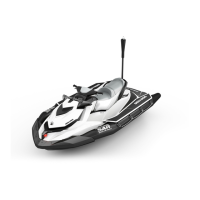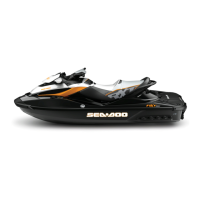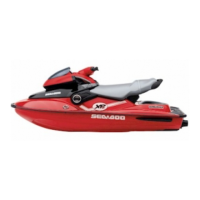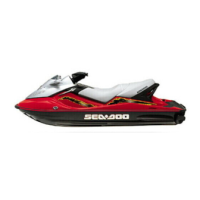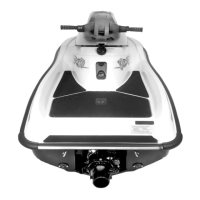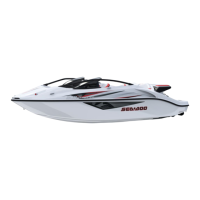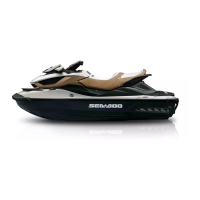SPECIAL SAFETY MESSAGES
Drugs and Alcohol
Never operate your PWC under the
influence of alcohol or drugs. Like driv-
ing a car, driving a watercraft requires
the operator to be sober, attentive and
alert. Operating a watercraft while
intoxicated or under the influence of
drugs is not only dangerous, but it is
also a Federal offense carrying a sig-
nificant penalty. These laws are vigor-
ously enforced. The use of drugs and
alcohol, singly or in combination, de-
creases reaction time, impedes judg-
ment, impairs vision, and inhibits your
ability to safely operate a watercraft.
WARNING
Alcohol consumption and boating
do not mix! Operating under the
influence endangers the lives of
your passengers, other boaters,
and yourself. Federal laws pro-
hibit operating a watercraft under
the influence of alcohol or drugs.
Water Sports (Towing with
the Watercraft)
WARNING
Avoid personal injury! Your PWC
is not designed for and should not
be used for pulling another craft,
parasails, kites, gliders, or any de-
vice which can become airborne.
Use watercraft only for appropri-
ate water sports.
Water skiing, wakeboarding, or riding
a towed inflatable apparatus are
some
of the more popular water sports. Tak-
ing part in any water sport requires
increased safety awareness b
y the par-
ticipant and the watercraft operator. If
you have never towed someone be-
hind your PWC before, it i
s a good idea
to spend some hours as an observer,
working with and learning from an ex-
perienced operator. It is also important
to be aware of the skill and experience
of the person being towed.
Everyone participating in a water sport
should observe these guidelines:
– Riding with passenger(s) or pulling
a tube, skier or wakeboarder makes
the watercraft handle differently
and requires greater skill.
– Always respect the safety and com-
fort of your passenger(s) and person
being towed on skis, wakeboard or
other water products.
– Always carry an observer when
pulling a tube, skier or wakeboarder
to observe the person being towed
and inform the operator about the
participants' hand signals. The op-
erator must focus his attention on
operating the watercraft and the
waters ahead.
– Proceed with onlyas much speedas
required and follow the observers'
instructions.
– When pulling a tube, skier, or a wake
boarder, do not make tight sharp
turns unless absolutely necessary.
Remember that although this PWC
is manoeuvrable, the person in tow
may not be able to avoid an obsta-
cle, or the PWC with which it is be-
ing towed.
– Allow only capable swimmers to
take part in any water sport.
– Always wear an approved personal
flotation device (PFD). Wearing
a properly designed PFD helps a
stunnedorunconsciousperson stay
afloat. A Type-IV water-sk
ivestisan
approved and practical PFD.
– Be considerate to others you share
the water with.
12
_______
SAFETY I
NFORMATION
________
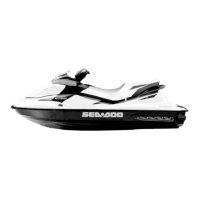
